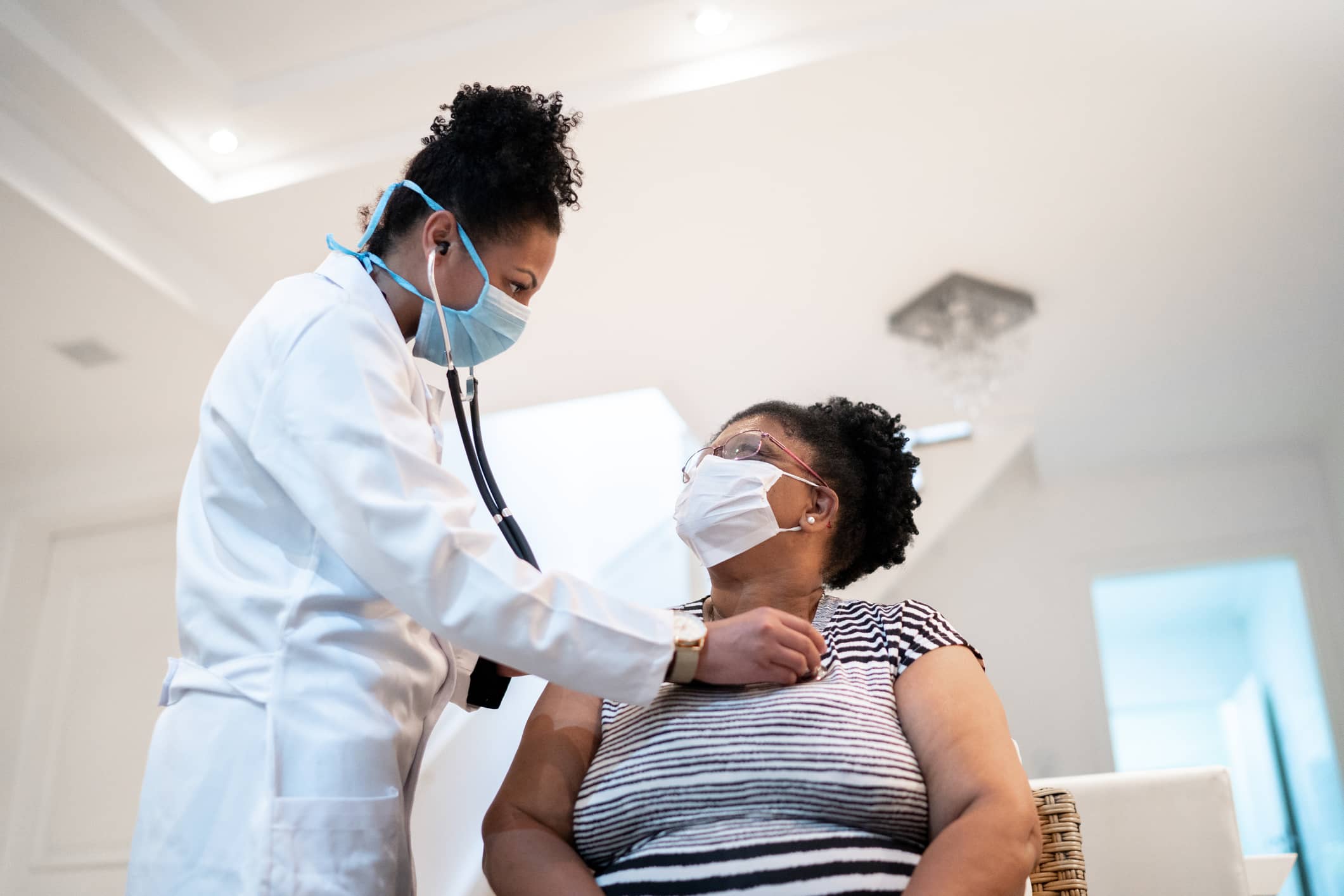
7 Advancements in Cardiovascular Care
What cardiovascular nurses should know about the latest treatments for heart disease
Advancements in cardiovascular care and cardiovascular nurses have helped many patients, but heart disease remains the top cause of death in the United States.
“I love the adrenaline from helping patients who are crashing, and you go to work to save them,” said cardiovascular nurse Sarah E. Schroeder, ACNP-BC, MSN RN, AACC, PhD candidate and mechanical circulatory support nurse practitioner and program manager at Bryan Heart in Lincoln, Nebraska.
“I love when my patients come back months later to recognize the hard work their cardiac nurses did, no matter the procedure they had,” added Schroeder, who served as editor for a recent symposium on mechanical circulatory support in AACN Advanced Critical Care. “Many patients feel when their cardiac issue is going on that this may be their last moments on earth. Reassurance to them comes from their nursing staff.”
Find cardiovascular nursing jobs across the U.S.
The stark realities of heart disease
The Centers for Disease Control and Prevention reported a 4.1 percent increase in heart disease deaths from 2019 to 2020, with 168.2 cardiovascular deaths per 100,000 U.S. population in 2020.
The American Heart Association’s data indicated an 18.7 percent increase in cardiovascular disease deaths from 2010 to 2020 in its latest annual Heart Disease and Stroke Statistics—2022 Update. More than 800,000 Americans die of cardiovascular diseases annually, according to the association.
COVID-19 has deterred many patients from seeking care for cardiac conditions, reported the American College of Cardiology and other sources. And in some cases, semi-elective procedures have been delayed due to staffing and bed shortages.
“Because of the pandemic, patients don’t present to the hospital like they used to,” Schroeder said. “Before the pandemic, patients would come to the hospital with chest pain, shortness of breath and other types of cardiovascular symptoms that needed addressed. Now, we often see patients coming to the hospital after experiencing a heart attack at home or coming in very sick. These patients often require more care than they perhaps may have not required if they would have presented sooner.”
7 Game Changers for Cardiovascular Patients
New medications, medical devices and public health strategies are changing the cardiovascular landscape, from prevention to end-stage heart failure.
1. For instance, a “polypill” containing simvastatin, atenolol, hydrochlorothiazide and ramipril, plus aspirin, reduced cardiovascular events, as compared with a placebo, in a study reported in The New England Journal of Medicine.
2. More and more patients are wearing Apple watches, which monitor a person’s heart rate and can identify atrial fibrillation. However, the U.S. Preventive Services Task Force has made no recommendation for screening of atrial fibrillation using such wearable devices.
3. In 2020, the U.S. Food and Drug Administration approved a new treatment for heart failure called dapagliflozin (Farxiga) for adults with reduced ejection fraction. The drug can reduce the risk of death from cardiovascular disease and hospitalization for heart failure.
4. “Medications aren’t always enough, and patients may need a medical device to keep their heart beating,” Schroeder said. “There are a variety of ways to improve a cardiac patient’s quality of life.”
Cardiovascular interventionalists have started performing transcatheter mitral valve repairs and transcatheter aortic valve replacement, which serve as alternatives to surgery.
5. Another technology, left ventricular assist devices (LVADs), are surgically implanted in the heart, with a line that exits the chest and attaches to a controller and power source, Schroeder explained. LVADs are often implanted while a patient waits for a transplant.
“We’ve gone from devices that were the size of a cantaloupe with survival rates of 60 percent to a device the size of a kiwi with one-year survival upwards of 87 percent,” Schroeder adds. “For patients with advanced heart failure, durable LVADs may be exactly what they need. Nurses are integral in their recovery and success following surgery.”
6. Extracorporeal membranous oxygenation (ECMO), allows the body to rest as it oxygenates the patient’s blood outside of the body. ECMO has been used to treat COVID-19 patients as well as cardiac patients, eliminating the need for mechanical ventilation.
7. In addition, greater emphasis is being placed on recognizing and treating cardiovascular disease in women and underserved communities. The American Association of Critical-Care Nurses (AACN), among other groups, has called attention to these special populations.
Cardiovascular nursing, certifications and subspecialties
“Cardiovascular nurses need to have a wide array of skills based upon their location and patient population,” said Schroeder. “They have to be able to know the general basics of looking at electrocardiograms. They need to know the basic cardiac function, from the flow pattern of blood to the cardiac conduction cycle.”
Nurses in this specialty also must be able to start and manage IV lines and the many medications used to manage cardiac conditions. Cardiovascular nurses work in intensive care, progressive cardiac care, catheterization labs and cardiology practices.
“All cardiac nurses should be aware of advanced heart failure management and acute heart attack/cardiogenic shock,” Schroeder said.
A number of certifications are available to cardiovascular nurses, which serves to validate a nurse’s skills and knowledge in their chosen specialty.
The American Nurses Credentialing Center offers cardiac vascular nursing certification. AACN offers subspecialty certifications for certified nurses who focus on cardiac surgery or cardiac medicine. Additionally, nurses can seek certification in basic life support (BLS) and advanced cardiovascular life support (ACLS).
Cardiovascular nurses make a difference in patients’ lives every day.
“I love cardiology and can’t see myself in any other place, past, present or future,” Schroeder said. “It gives me the drive to go to work every day, to help people through a crisis and then see them return to a good quality of life.”
American Mobile has hundreds of jobs for travel cardiovascular nurses across the country, in a variety of settings and subspecialties.
APPLY TODAY to start working with one of our friendly recruiters.

